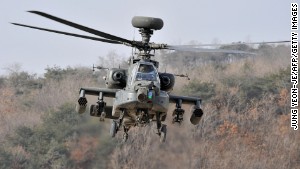Washington – A previously unpublicized battle with ISIS so intense that it saw a U.S. service member awarded a Silver Star is highlighting the increasing danger U.S. troops are facing as they advise and assist forces in Syria and Iraq.
CNN has learned that Navy SEAL Charles Keating IV participated in a major clash in Syria in March for which he posthumously received the nation’s third-highest award for combat valor.
CNN has also obtained new details about the fatal May 3 firefight in which Keating lost his life.
Keating, tasked to fill a “train, advise and assist” role, was killed in Iraq while helping to rescue a small team of U.S. military advisers and Kurdish forces from an attack mounted by more than 100 ISIS fighters.
A decorated combat veteran and star athlete who decided to enlist after the 9/11 attacks, Keating was part of a Navy SEAL operation in northern Iraq called Task Force Trident working with Kurdish Peshmerga fighters combatting ISIS.
According to one account of the May clash in Iraq provided to CNN, a group of Navy SEALs and local Peshmerga forces were attacked by a large unit of ISIS fighters that had overwhelmed the Kurdish front line by rushing in with bulldozers, trucks and weapons.
A group of nearly 20 SEALs including Keating was deployed to respond to the ISIS attack. During the ongoing battle, the SEALs ran low on ammunition and Keating’s machine gun malfunctioned, according to initial battlefield reports. Keating went back to a nearby coalition vehicle to get a new weapon and additional ammunition.
Keating, now armed with a sniper rifle, climbed on top of a building and began firing on the ISIS fighters. It was at this point that Keating was struck by enemy fire. Two other SEALs carried him down from the roof and he was placed in a medevac helicopter, but the battle was so intense that the helicopter was also hit before managing to take him to a hospital where he was declared dead.

At the time, coalition spokesman Col. Steve Warren told reporters that that the two-hour clash between ISIS and the Peshmerga forces the advisers were assisting was “a big fight, one of the largest we’ve seen recently.”
But a previously unrevealed battle on March 4 equally dire and dangerous, involving pitched combat against about 100 ISIS fighters.
The details of this earlier fight were revealed in the little-noticed Silver Star citation presented to Keating’s family after his death on May 3.
According to the citation, Keating “continuously exposed himself to enemy automatic weapon, mortar, and rocket grenade fire.”
Keating kept moving on the battlefield between the front line and the flanks talking to the Peshmerga, encouraging them to keep going.
n the March battle, more than 100 ISIS operatives assaulted Peshmerga lines and Keating, serving as an advisor then as in May, moved in to help repel the attack.
As ISIS fighters sent a car bomb towards him, Keating led a team to counterattack with sniper and rocket fire.
“His personal bravery inspired his comrades to vigorously defend their position and repel the enemy assault,” according to the citation.
The Pentagon has never acknowledged the first Syrian battle. U.S. military officials say they are under no obligation to reveal the details of battles U.S. troops are involved in even if it’s against a large enemy force, and they will not routinely report if a U.S. service member is wounded — only when one is killed.
The revelation of two pitched battles in the space of eight weeks between Navy SEALs and two groups each of 100 ISIS fighters underscores that Special Operations Forces being deployed to train, advise and assist local forces are in real danger of being attacked.
In April President Barack Obama announced the deployment of 250 additional Special Operation Forces to Syria and described their role in a somewhat different way.
While making the announcement in Hannover, Germany, Obama said, “They’re not going to be leading the fight on the ground, but they will be essential in providing the training and assisting local forces.”
As reported by CNN
